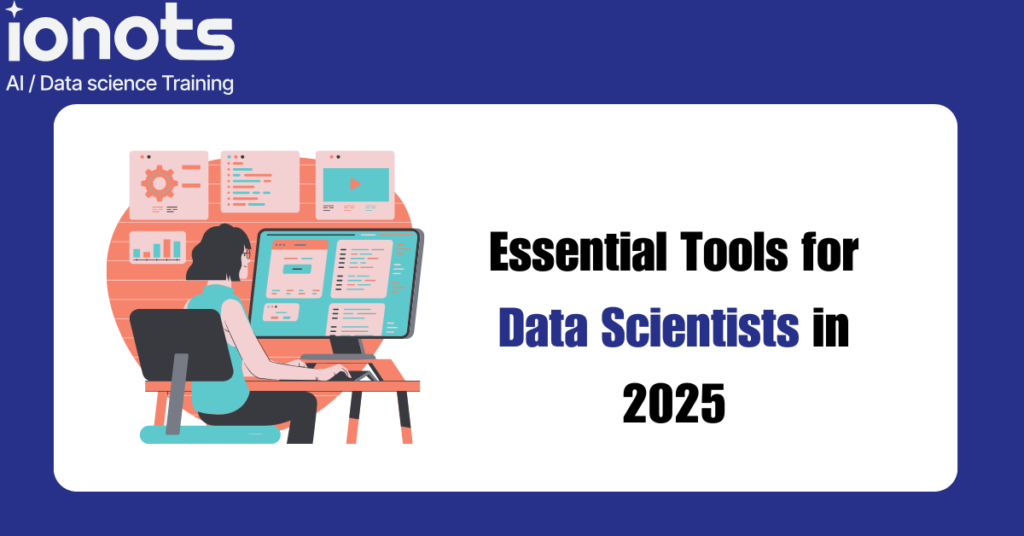Data Science is evolving at an unprecedented pace, and staying relevant requires mastering the tools and technologies that are shaping the industry. If you’re aspiring to become a data science expert or advance your career in this field, here are the key areas you need to focus on in 2025:
Python: The Foundation of Data Science
Python remains the most widely used programming language in data science due to its simplicity, versatility, and robust ecosystem of libraries like NumPy, Pandas, and Scikit-learn. Whether you’re analyzing data, building machine learning models, or visualizing trends, Python is an essential skill to master.
Resources to Explore:
- Python.org for official documentation
- Real Python for tutorials and guides
Deep Learning: Solving Complex Problems
Deep learning, powered by neural networks, enables machines to learn from massive datasets. It’s the backbone of innovations like self-driving cars, facial recognition, and natural language processing. Frameworks like TensorFlow and PyTorch make implementing deep learning solutions accessible for data scientists.
Resources to Explore:
- Deep Learning by Ian Goodfellow
- TensorFlow and PyTorch documentation
Machine Learning: The Core of Data Science
Machine learning is at the heart of predictive analytics and data-driven decision-making. Techniques like regression, classification, clustering, and reinforcement learning are used across industries to gain insights and improve efficiency. Understanding the algorithms and tools like Scikit-learn and XGBoost is crucial.
Resources to Explore:
Computer Vision: Analyzing Visual Data
Computer Vision empowers machines to interpret and analyze visual data such as images and videos. Applications range from medical imaging to retail analytics. Mastering libraries like OpenCV and specialized models like YOLO (You Only Look Once) can help you build impactful solutions.
Resources to Explore:
Neural Networks: Powering Intelligent Systems
Neural networks are the building blocks of deep learning. Understanding concepts like convolutional neural networks (CNNs) for image data and recurrent neural networks (RNNs) for sequential data will enable you to create advanced models for diverse applications.
Resources to Explore:
Hugging Face: Simplifying NLP
Hugging Face is revolutionizing natural language processing (NLP) with pre-trained models like BERT and GPT. These tools allow data scientists to perform sentiment analysis, text generation, and translation with minimal effort.
Resources to Explore:
- Hugging Face for models and tutorials
- Transformers Documentation
Prompt Engineering: Optimizing AI Interactions
Prompt engineering is a rising discipline, especially with the widespread use of generative AI tools like ChatGPT. Crafting effective prompts to guide AI models is becoming a valuable skill for generating meaningful and accurate outputs.
Resources to Explore:
- OpenAI’s ChatGPT
- Learn Prompting for practical tips
Generative AI: Creating the Future
Generative AI is leading the way in creative problem-solving, from creating art and music to writing code and designing virtual environments. Tools like DALL-E and MidJourney are empowering creators, while models like GPT are driving innovation in industries like marketing and customer service.
Resources to Explore:
Conclusion
The future of data science is brimming with possibilities, and mastering these essential tools and technologies will ensure you remain at the forefront of the industry. By building expertise in Python, machine learning, deep learning, and cutting-edge areas like Hugging Face and generative AI, you can unlock new opportunities and drive impactful solutions in 2025 and beyond.
Ready to embark on your data science journey? Start today and stay ahead in this ever-evolving field!
Related Blog Posts
Don’t forget to check out our other detailed guides:
- Power BI vs. Tableau: Which to Learn in 2025?
- SQL Essentials for Data Analysis
- NumPy: Your Ultimate Guide to Numerical Computing
- Pandas: Master Data Manipulation in Python
- Scikit-learn: Machine Learning Made Simple
- Matplotlib Made Easy: Key Tips for Visualizing Data
- Unlock Insights: Matplotlib, Seaborn & Dash Mastery
- Master Python with 30 Essential Questions & Answers
Consequently, if you’re eager to take your skills to the next level, our specialized courses offer comprehensive training in:
- Advanced NumPy techniques
- Data manipulation
- Machine learning fundamentals
- AI and deep learning concepts
Explore Our Data Science and AI Career Transformation Course

